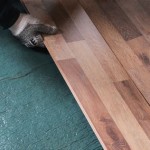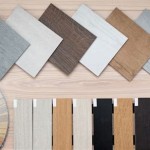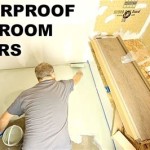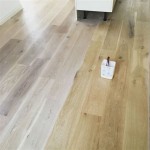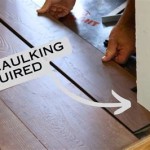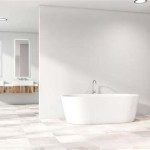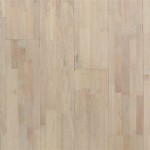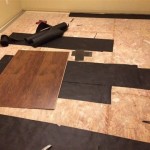Is Vinyl Plank Flooring Safe to Use?
Vinyl plank flooring has become increasingly popular in recent years due to its affordability, durability, and stylish appearance. However, with any new product, questions arise about its safety. This article examines the safety aspects of vinyl plank flooring, addressing common concerns and providing information to help homeowners make informed decisions about their flooring choices.
Chemical Concerns and VOC Emissions
One of the primary concerns about vinyl plank flooring is the potential for chemical emissions, particularly volatile organic compounds (VOCs). VOCs are organic chemicals that evaporate at room temperature and can contribute to indoor air pollution. Some vinyl plank flooring products contain chemicals like phthalates, which have been linked to health problems. However, the amount of VOCs emitted from vinyl plank flooring has significantly reduced in recent years due to stricter regulations and advancements in manufacturing processes.
It's important to note that not all vinyl plank flooring is created equal. Choosing products certified by reputable organizations, such as FloorScore, ensures that they meet specific low-VOC standards. Additionally, proper ventilation during and after installation helps to minimize potential VOC emissions. Purchasing flooring with a low VOC rating and ensuring adequate ventilation can significantly reduce exposure to harmful chemicals.
Health Effects of Vinyl Plank Flooring
While VOC emissions from vinyl plank flooring have decreased, there are still concerns about potential health effects. Studies have linked exposure to high levels of certain chemicals found in vinyl flooring, such as phthalates, to various health issues, including respiratory problems, allergies, and developmental issues in children.
However, the risk of experiencing these effects from vinyl plank flooring is generally low, particularly for products with low VOC emissions. The level of exposure is also dependent on factors like the size of the space, the amount of flooring installed, and the overall ventilation of the home. It's crucial to consult with a healthcare professional if you have any specific concerns about your health and potential exposure to chemicals from flooring materials.
Flammability and Fire Safety
Another essential safety consideration with any flooring material is its flammability. Vinyl plank flooring is generally considered to be relatively fire-resistant, meaning it doesn't readily ignite and spread flames. Modern vinyl plank flooring often incorporates fire-retardant additives that further improve its fire safety performance. However, it's important to remember that vinyl flooring is still combustible and can melt under extreme heat.
To ensure optimal fire safety, it's advisable to install vinyl plank flooring in rooms with working smoke detectors. Proper ventilation is also essential to remove any potential smoke or fumes that may arise during a fire. It's also critical to avoid placing heat sources directly on vinyl plank flooring, such as hot appliances or burning candles, to prevent damage and potential fire hazards.
Other Safety Considerations
Beyond chemical emissions and flammability, there are other safety aspects to consider with vinyl plank flooring, including:
- Slip Resistance: Some vinyl plank flooring products can be slippery, particularly when wet. Choose flooring with a textured surface for better grip and reduce the risk of falls, especially in high-traffic areas and bathrooms.
- Installation: Proper installation is crucial for ensuring the safety and longevity of vinyl plank flooring. Uneven installation can create tripping hazards, while improper sealing can lead to water damage and mold growth. It's best to consult with a professional installer to ensure correct installation procedures are followed.
- Maintenance: Regular cleaning and maintenance are essential for all flooring types, including vinyl plank flooring. Carefully follow the manufacturer's instructions for cleaning and avoid using harsh chemicals that can damage the flooring and potentially release harmful substances.
By understanding the potential safety concerns and taking appropriate precautions, homeowners can enjoy the benefits of vinyl plank flooring without compromising their well-being. Choosing products with low VOC emissions, prioritizing proper ventilation, and following safe installation and maintenance practices will help minimize risks and ensure a safe and comfortable living environment.

How To Choose The Right Vinyl Plank Deerfoot Carpet Flooring

The Disadvantages Of Vinyl Plank Flooring A Guide Reallyfloors America S Est Hardwood

What I Ve Learned As An Inspector For Luxury Vinyl Flooring Wood Floor Business

The Dangers Of Luxury Vinyl Floors Lvt And How You Can Avoid Them Artisan Wood Llc

A Beginner S Guide To Installing Vinyl Plank Flooring Dumpsters Com

10 Beginner Mistakes Installing Vinyl Plank Flooring Fixthisbuildthat

Vinyl Floor Faq 20 Things You Should Know

Can You Use Vinyl Flooring In Your Garage

What Is Luxury Vinyl Plank Flooring America

The Dangers Of Luxury Vinyl Floors Lvt And How You Can Avoid Them Artisan Wood Llc
See Also
